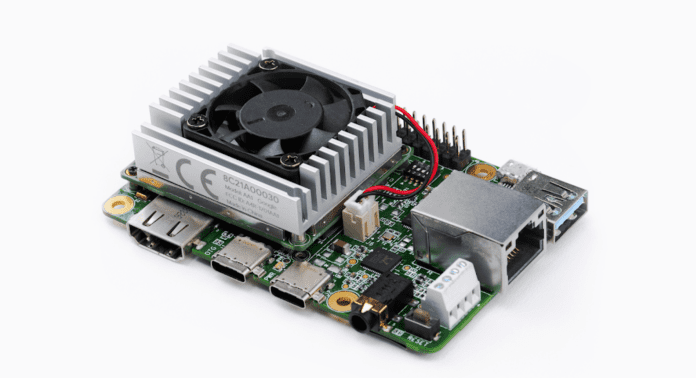Google has released new hardware for machine learning at the edge in the form of a single-board computer running its edge-based Tensor Processing Unit (TPU) processor. Alongside the new system-on-module (SOM), available under its Coral brand, Google has unveiled a USB-connected accessory that brings machine learning inferencing to existing systems.
Google first announced its entry into the hardware game via its Edge TPU integrated circuit (IC) at Google IO back in 2016, and revealed its third iteration, with ever-greater edge-compute power, at its developer conference last summer. It is geared towards predictive maintenance, anomaly detection, machine vision, robotics, voice recognition and other low-latency industrial use cases.
The Coral developer board, to be available for $149.99 from distributor Mouser, is designed for quick prototyping of on-device machine learning applications. Its Edge TPU application-specific integrated circuit (ASIC) features an NXP i.MX 8M system-on-chip (SOC ), with a quad-core Cortex-A53 and a Cortex-M4F. It also has an integrated GC7000 Lite Graphics GPU, 1GB of RAM, and 8GB of Flash memory. It measures 48mm x 40mm x 5mm.

The baseboard has a microSD slot, a Gigabit Ethernet port, and a range of audio ports. WiFi and Bluetooth 4.1 are included, alongside USB connectivity, with Type-C OTG, a Type-C power connection, a Type-A 3.0 host, and a micro-B serial console. It measures 88mm x 60mm x 24mm
The SOM can be removed from the baseboard, ordered in bulk, and integrated into hardware. All elements run a derivative of Debian Linux, called Mendel. TensorFlow Lite models can be compiled to run on the Coral board.
The new USB Accelerator works with Raspberry Pi and other Linux systems, connected via a USB Type-C cable, and allows for edge-based AI inference. It measures 65mm x 30mm. It will be available for $74.99 from Mouser.

